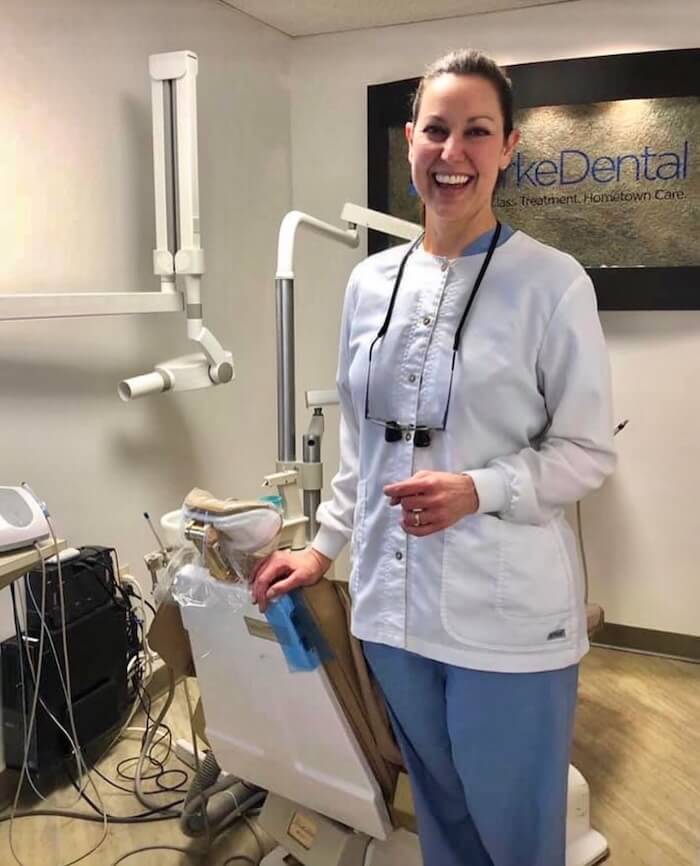When would my dentist recommend a dental crown?
Dentists recommend dental crowns for several conditions such as significant tooth decay, large cavities, or tooth cracks. Crowns serve to encapsulate the tooth, preventing further damage and eliminating the risk of future fractures. They are especially advisable after procedures like root canal treatments, where the tooth's structural integrity may be compromised.
What is the difference between dental crowns and a dental bridge?
Comparing dental crowns and bridges, the preparation for a single crown is relatively straightforward and requires minimal tooth alteration. However, replacing a missing tooth with a dental bridge necessitates more extensive preparation of the adjacent teeth to ensure a secure fit.
What type of dental crown is best for a molar?
The optimal material for molar crowns should offer full coverage due to the intense chewing forces these teeth endure. Materials that provide robust, comprehensive coverage are preferred to maintain strength and functionality.
What kind of crown is best for front teeth?
For anterior teeth, aesthetic considerations are paramount. Materials used for crowns on front teeth should blend seamlessly with natural teeth, enhancing the smile's appearance.
Is it possible to not get a dental crown after a root canal?
After a root canal, a crown is necessary to fortify the now non-vital tooth, protecting it against potential cracks or fractures.
What different materials are used in dental crowns?
Dental crown materials vary depending on the location and functional requirements. Aesthetic crowns might use materials like zirconia, porcelain, or composite, while posterior crowns might require stronger materials such as Porcelain-Fused-to-Metal (PFM) to withstand the demands of chewing.
Are crowns as strong as real teeth?
Dental crowns are designed to mimic the strength of natural teeth, ensuring that the tooth remains functional and healthy. The crown procedure typically involves tooth preparation, taking an impression, and then fitting the permanent crown about one to two weeks later.
What type of anesthesia do you need for a crown?
Local anesthesia is used during the crown procedure to ensure the patient experiences no pain or sensitivity. Post-procedure, patients are advised to maintain rigorous oral hygiene, including daily brushing and flossing around the crown, to prevent plaque build-up and ensure the crown remains in good condition.
What type of life expectancy do you need for a crown?
The lifespan of a dental crown typically ranges from 15 to 20 years, although with diligent care and regular dental check-ups, they can last beyond 20 years. Regular dental visits allow for early detection of issues such as decay or sensitivity under the crown through X-rays and examinations.
What is the cost of dental crowns?
The cost of dental crowns varies based on the materials used and the specific needs of the tooth being treated. Costs may differ between crowns for posterior versus anterior teeth or when comparing with other options like veneers.
If you are experiencing tooth sensitivity, pain, or suspect decay under an existing crown, immediate examination is advisable. At Burke Dental, we are ready to address your concerns and can schedule prompt appointments for crown consultations or replacements.
For any further questions about dental crowns or to schedule an appointment, please contact us at Burke Dental at (703) 940-9410. We are committed to providing you with the best care and answering all your inquiries.

A tooth that is broken, damaged, or in general poor condition can be harmful to your health. It can also affect feeling comfortable about your tooth and your self-confidence.
Dental crowns are almost exactly the way they sound – a crown, or cap, for your tooth. Dental crowns help restore a tooth, resulting in a truly aesthetically pleasing appearance.
Here are some of the reasons you need a dental crown:
Reasons for crowns:
- Tooth that is broken or fractured.
- Decayed teeth.
- Cosmetic Benefits.
- Large or Fractured fillings.
- Root canal.
Restore Your Smile Today
Crowns also replace severe cases of tooth decay that have resulted in a large amount of tooth loss. Crowns allow dentists to restore form and function to your tooth without needing to perform an extraction. It is always best to save as much real tooth/enamel as possible.
The Dental Crown Placement Process
This process begins with a consult and exam where we develop a plan for you. We take dental impressions to ensure a precise fit for your tooth. We also treat and resolve any decay or infection prior to placement of the crown.
Once the impressions are ready for your tooth, we place the crown for a proper fit. Once your crown is fitted appropriately, you can again be confident about your dental health and your amazing smile.
